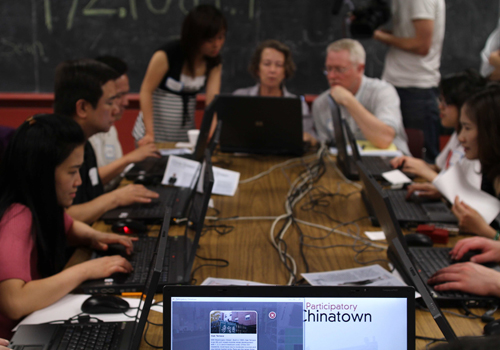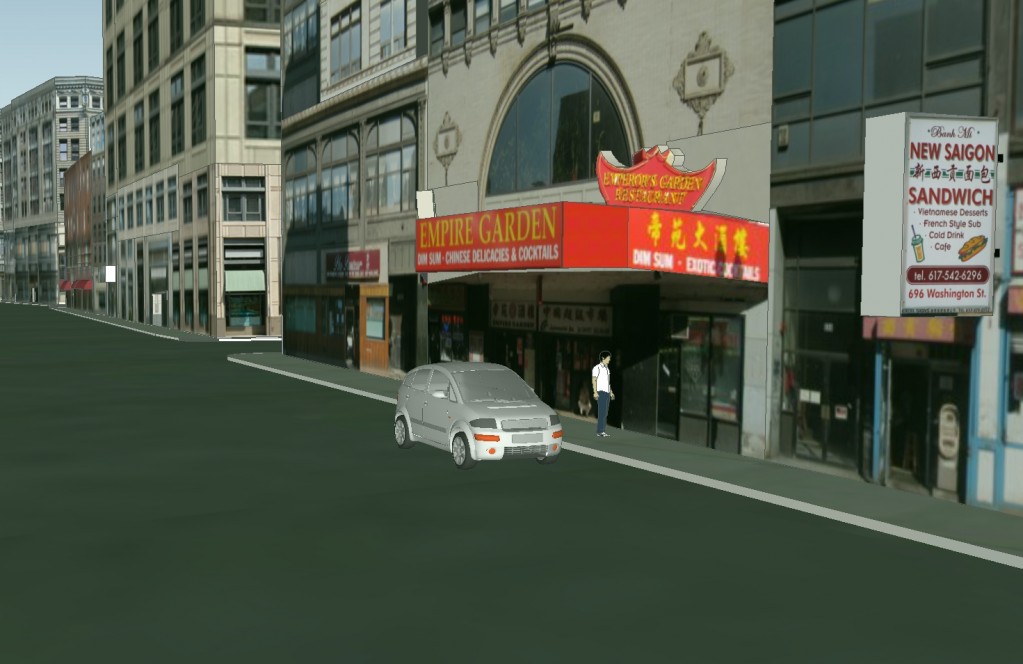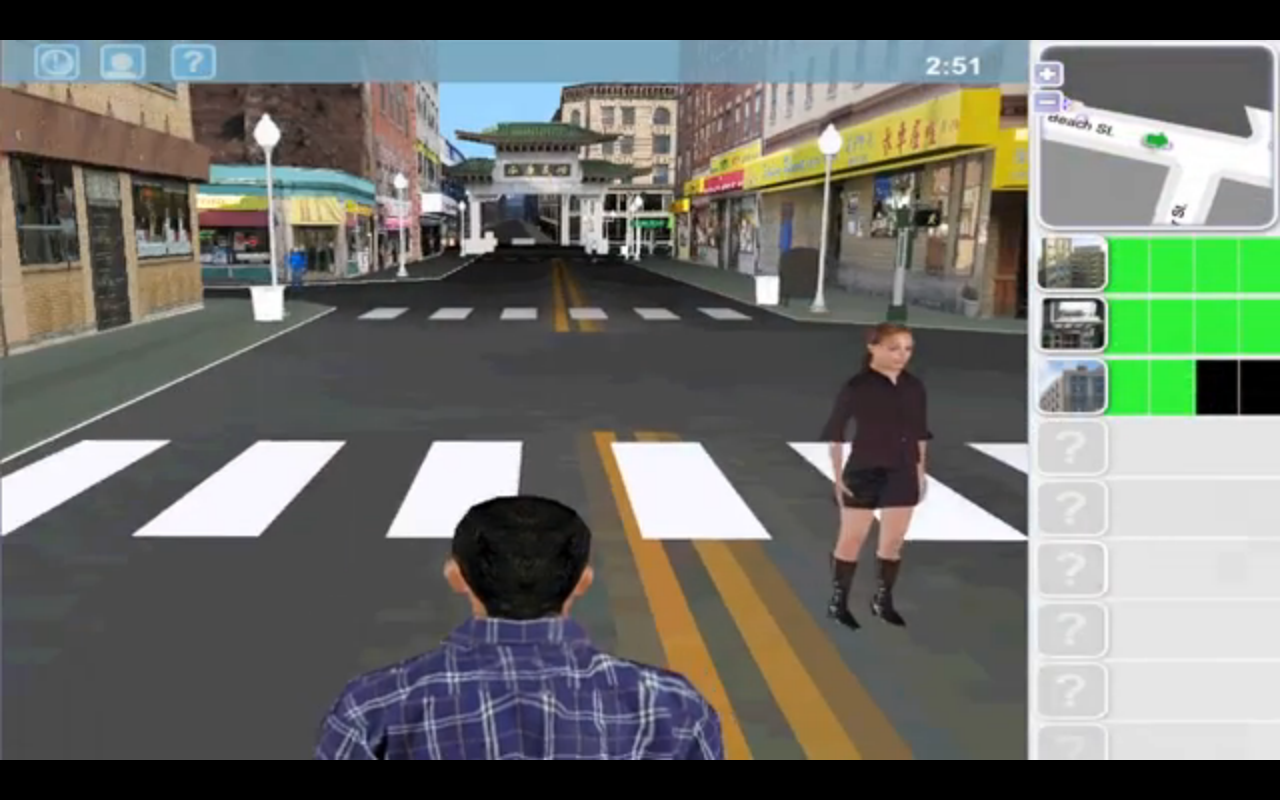Games for Cities
Participatory Chinatown (2010)
Boston [US]
Developed by:
Digitally integrated analog role-play game specifically designed to facilitate stakeholder engagement towards more inclusive decision-making processes in the City of Boston’s Chinatown master plan.

Rich in socio-economic and ethnic diversity, Boston’s Chinatown struggled to maintain its unique identity as a community and welcoming place for new immigrants in the face of accelerating gentrification. Traditional town-hall style meetings had not sufficiently brought residents into the conversation. In response, Participatory Chinatown was developed as a complementary tool to stimulate stakeholder engagement, learning and diversity through a more inclusive and active decision-making process.
Participatory Chinatown is a 3D-immersive role-playing game. The game triggers both real conversation and digital interaction by uniting players side-by-side in a physical space as they each explore a virtual local context. In the game, players assume one of 15 virtual resident roles, each equipped with a character description and assigned task: find a job, house or place to socialize. By playing their character role in the first part of the game, players gain insight into others’ needs and preferences. In the second part of the game, players then prioritize their own values. This game dynamic induces greater individual realizations of diverse and collective community needs that help reinvigorate town-planning processes.
While Participatory Chinatown isn’t intended to replace the usual community-hall gatherings, it does highlight some of the shortcomings of this more traditional approach. In particular, the game’s online platform allows it to open participation up to a wider range of engaged citizens instead of the ‘usual suspects’ of developers, activists, and retirees. Community members are able to work through problem solving together, which generates a deeper connection and understanding of the issues. In the final step of the process, all players’ comments and decisions generated during the game are passed on to real-life decision-makers.

